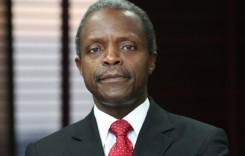Nigerian security agents raided the offices of black market currency dealers on Thursday, detaining some and ordering others to sell dollars at a lower rate in a bid to break the fall of the currency, dealers said.
The Central Bank has been unable to stop the naira’s slide on the black market, where importers go to buy dollars due to severe hard currency shortages in Africa’s biggest economy.
The economy has been pushed into recession partly by a slump in prices for oil, a key source of revenue that has the added attraction of coming in the form of dollars.
The apex bank has kept the official naira rate to the dollar artificially high, effectively driving hard currency dealing away from commercial lenders and towards the black market, the real benchmark.
According to Reuters, ‚ÄúThe police and state security service officials are raiding black marketers in Lagos and Abuja to compel an appreciation of the naira,‚ÄĚ Mallam Adamu, a bureau de change operator, told Reuters.
Another trader said security agents visiting bureau de change operators told dealers not to sell dollars for more than 395 naira.
‚ÄúWe‚Äôve stopped buying dollars from just anybody that walks into our shop due to the harassment from security agents and a directive from our association,‚ÄĚ said a dealer, asking not to be named.
The currency is changing hands at 460 naira per dollar on the black market, far weaker than the official rate of 305.5. The naira had regained some ground this week after dropping earlier from 470, but dealers said hard currency supplies remain limited.
Aminu Gwadabe, head of the Bureau de Change association, said his licensed dealers had agreed with the central bank and security agencies to enforce a rate of 390 to 400 to the dollar.
‚ÄúThe issue of naira depreciation has been narrowed to the activities of speculators and we have decided, with the cooperation of both the central bank and the security agents, to enforce a new rule on pricing,‚ÄĚ he said.
The Lagos police declined to comment. A source at the central bank only said the bank was concerned about the spread between the official and parallel market rate.

